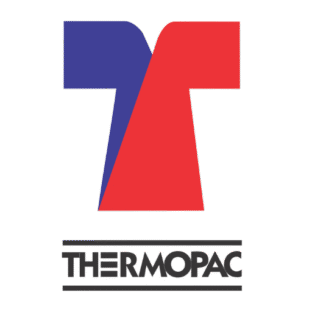Innovations in Re-Refining: The Future of Sustainable Lubricant Production
As the world embraces a circular economy, re-refining of used lubricating oil has emerged as a pivotal innovation in the journey toward sustainability. More than just an environmentally responsible process, modern re-refining system has become technically advanced, cost-efficient, and globally scalable. And at the forefront of this transformation is Thermopac, a global pioneer in turnkey re-refinery solutions.
Thermopac has been delivering fully integrated re-refining plants since 1986, with over 31 installations across five continents, collectively processing 1 million litres of used engine oil per day. Their innovations are not just redefining re-refining—they’re shaping the future of sustainable lubricant production.
The Shift from Disposal to Recovery
Traditionally, used engine oil was either incinerated or disposed of improperly, leading to severe environmental damage. However, with rising awareness and stricter regulations, industries are seeking alternatives that not only manage waste but also recover value.
Re-refining offers exactly that. Through advanced thermal and chemical processes, used oil can be upgraded into high-quality API Group I or Group II base oils, reducing dependency on virgin crude and slashing emissions. But not all re-refining methods are equal—and that’s where innovation matters.
Thermopac Wiped Film Evaporation (TWFE): A Game-Changer
At the heart of Thermopac’s re-refining technology is the proprietary TWFE (Thermopac Wiped Film Evaporation) system. Unlike traditional vacuum distillation alone, TWFE is designed to handle wide variability in feedstock—be it automotive engine oil, industrial lubricants, or marine oils—while ensuring minimal thermal degradation and maximum oil recovery.
Key Benefits of TWFE Technology:
- Oil recovery of 95–97%
- High tolerance to contaminants and moisture
- Minimally fouling, energy-efficient design
- Long operating cycles with minimal downtime
This core innovation ensures that Thermopac clients enjoy higher yields, fewer residues, and longer equipment life—all while reducing energy costs.
Modular, Skid-Mounted, and Ready-to-Install
One of Thermopac’s standout engineering innovations is the modular skid-mounted design. Every plant is pre-engineered, factory-assembled, and fully tested before shipment—minimizing on-site work, civil construction, and commissioning time.
With this approach:
- Plants can be installed in 4–6 weeks
- System capacity can be scaled by simply adding new modules
- Maintenance is simplified and operational risk is reduced
This model is ideal for customers across diverse geographies, especially in regions with logistical or infrastructure constraints.
Two Distinct Finishing Options: Flexibility Built-In
Thermopac recognizes that different markets and applications require different oil specifications. That’s why every re-refinery plant includes a tailored finishing system, offering either Activated Clay Treatment or Hydrogenation (Hydrotreating).
1. Clay Treatment
- Produces API Group I base oils (light yellow color)
- Cost-effective, especially for markets with moderate purity needs
- Proven and simple to operate
2. Hydrotreating
- Produces API Group II water-white base oils
- Removes sulfur, nitrogen, and unsaturated hydrocarbons
- Ideal for demanding automotive and industrial applications
This dual offering allows clients to select a process that fits their feedstock quality, market demand, and capital investment capabilities.
Automation, IoT, and Zero-Waste Design
Modern Thermopac plants are fully automated, equipped with DCS/SCADA control systems that allow operators to monitor and manage each stage with precision. This results in:
- Consistent product quality
- Improved energy efficiency
- Safer, operator-friendly systems
Additionally, Thermopac plants are engineered to minimize waste:
- Up to 5% of the input becomes saleable output
- Sludge and asphaltic residues are safely extracted and can be repurposed
- Water and gas treatment modules ensure zero harmful discharge
Return on Investment That Speaks Volumes
With oil recovery rates up to 97% and low energy consumption, Thermopac plants offer some of the best ROI in the industry. Typical payback periods range from 18 to 36 months, depending on plant size, local regulations, and feedstock costs.
Moreover, the durability of the TWFE system, combined with modular upgrades and reduced maintenance, ensures long-term operational profitability.
Built in India, Running Worldwide
All Thermopac plants are manufactured at its state-of-the-art facility in Rabale, Navi Mumbai, where every major component—evaporators, columns, boilers, and more—is built to international standards (ASME, API, TEMA, CE, U-stamp).
With a legacy of in-house engineering excellence, Thermopac supports its clients not just through design and construction, but also with training, documentation, post-commissioning service, and complete lifecycle support.
Conclusion: The Future Is Already Here
Sustainable lubricant production isn’t a future possibility—it’s happening now. And with innovators like Thermopac leading the way, the re-refining industry is set to become a cornerstone of responsible resource management. Through its pioneering technologies, modular approach, and global vision, Thermopac is helping industries close the loop on oil usage—efficiently, cleanly, and profitably.
